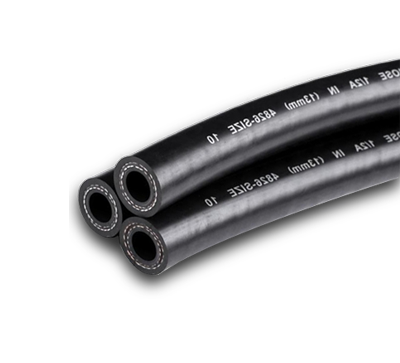SAE J2064 Standards for Automotive Refrigerant Hoses and Their Applications
កញ្ញា . 30, 2024 01:52 Back to list
SAE J2064 Standards for Automotive Refrigerant Hoses and Their Applications
Understanding SAE J2064 Hose Standard
The SAE J2064 standard is a crucial guideline established by the Society of Automotive Engineers (SAE) concerning the specifications for automotive refrigerant hoses. These hoses are primarily designed for air conditioning systems in automotive applications. Understanding this standard is essential for manufacturers, vehicle technicians, and automotive engineers as it ensures the reliability, safety, and efficiency of air conditioning systems.
Purpose of SAE J2064
The primary purpose of the SAE J2064 standard is to provide the necessary specifications for the construction and testing of hoses that transport refrigerants in automotive air conditioning systems. Given the rise in temperature during operation and the corrosive nature of some refrigerants, it is vital for hoses to be durable, resilient, and capable of withstanding high pressures. The SAE J2064 standard accounts for these factors, specifying material composition, construction methods, performance criteria, and testing protocols.
Key Features of SAE J2064 Hose
1. Material Composition The hoses covered under the J2064 standard are typically made from high-quality materials that can resist deterioration from refrigerants and the extreme temperatures found in engine bays. Common materials include synthetic rubber and thermoplastic elastomers that offer flexibility and resistance to environmental factors.
2. Construction Requirements The standard mandates specific construction techniques to ensure that hoses can handle both the mechanical stresses and the chemical environment they will face. This includes guidelines on the layering and reinforcement of hoses to prevent failure under pressure.
sae j2064 hose

3. Performance Testing Hoses must undergo rigorous testing to meet the SAE J2064 criteria. These tests evaluate aspects such as pressure resistance, burst strength, and leakage rates. Compliance with these tests ensures that hoses not only perform well initially but also remain reliable throughout their intended lifespan.
4. Thermal Stability Given the variations in operational temperatures, the hoses must exhibit thermal stability. The SAE J2064 standard includes provisions for evaluating performance under extreme temperature conditions, ensuring that hoses do not degrade over time and continue to function effectively.
Importance of Compliance
Adherence to the SAE J2064 standard is crucial for several reasons. First and foremost, it ensures the safety and reliability of automotive air conditioning systems, which are vital for passenger comfort and vehicle performance. Hoses that do not meet these standards can lead to leaks, system failure, and potentially hazardous conditions for vehicle occupants.
Additionally, compliance with the SAE J2064 standard helps manufacturers produce high-quality products that meet industry expectations. This not only enhances the longevity and performance of the vehicles but also contributes to customer satisfaction and trust in automotive brands.
Conclusion
The SAE J2064 standard plays a critical role in the automotive industry by setting the benchmark for refrigerant hoses used in air conditioning systems. Understanding this standard is essential for anyone involved in the design, manufacture, or maintenance of automotive systems. By ensuring that hoses are built to the specifications outlined in SAE J2064, manufacturers and technicians can guarantee a higher level of safety and performance in automotive air conditioning, ultimately leading to improved vehicle reliability and customer satisfaction. As the automotive industry continues to evolve, standards like SAE J2064 will remain fundamental in guiding advancements in engine and climate control system design.
